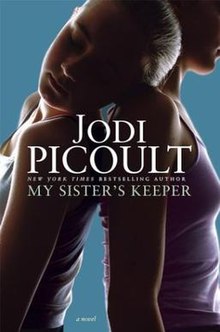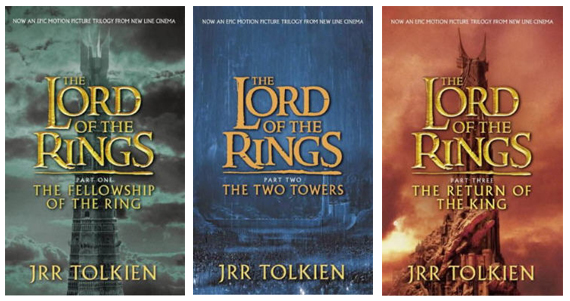
Eve: The Awakening is a 2015 young adult science fiction novel by Jenna Moreci. It was the author's debut novel. She self-published the novel and her follow-up was the acclaimed fantasy novel, The Savior's Champion. I became aware of this novel due to the author having a YouTube channel where she discusses writing and gives out writing advice.
The novel follows a teenager named Eve who is a chimera, meaning she has telekinetic abilities, along with a few other physical attributes, which separates her from the rest of humanity. After years of being an outcast and hated due to her abilities, Eve begins college at the esteemed Billington University, fully-prepared to reinvent herself and live as an ordinary human being. But things at Billington aren’t as they seem. In a school filled with prodigies, socialites, and the leaders of tomorrow, Eve finds that the complex social hierarchy makes passing as a human much harder than she had anticipated. Even worse, Billington is harboring a secret of its own: Interlopers have infiltrated the university, and their sinister plans are targeted at chimeras—like Eve. She must decide if she's going to stay in the shadows or rise up and fight.
I feel like I should start off this review by discussing the characters within the story. There is Eve, the title character and protagonist. I felt so-so about her to be honest. She had personality, and attitude, but at times, it just didn't make sense to me. She would easily brush off some things people said or did to her, but become enraged over other, less serious, events. Speaking of the way she was treated, all chimeras are feared by most of humanity because they aren't understood and because they have this innate power. Eve is no exception and, after her status as a chimera is revealed, people at the college start treating her poorly and for the most part she does nothing about it. She doesn't argue back, she doesn't fight back, she just lets it happen. While I can understand the "don't sink to their level" argument, it made me start to dislike her character. On her journey, Eve makes a number of quirky and interesting friends. The thing about them though, is that they have exactly one thing about them that makes them unique. Sancho is a pyromaniac. Percy is flamboyantly gay. JJ is a hacker extraordinaire. They're all quirky but one-dimensional. There are Madison, Heather and Hayden, the stereotypical mean girls who serve as Eve's "friends" early in the story, only to turn on her later. Lastly, there are the Interlopers, who serves as a faceless army of evil aliens and don't have much personality. They have an evil plan, details about that plan don't really seem to matter, but they're evil and they need to be stopped.
I love science fiction. I especially love sci-fi that takes place on Earth rather than on some far-off planet. When I read the blurb for this book, I thought it would be right up my alley. It turned out that I was wrong. While the story had potential, it was bogged down by a number of problems. One issue I had was with the amount of filler within this book. There was a lot more filler than was needed, which led to side storylines never going anywhere or not having a real conclusion. In a story about people with superpowers being targeted by aliens, Eve dealing with a math teacher who hates her feels out of place. There's also a storyline that's problematic, for lack of a better term, because a character is nearly assaulted and nothing ever comes of it. There are no repercussions, no consequences, the assault is stopped and that's it. The fact that these plotlines are in the story and don't really have a purpose indicates that maybe, they should've been omitted entirely. Another issue that I had was with the way the plot progresses. This novel isn't a character-driven story, but I wouldn't say it's plot driven either. It kind of straddles both methods and it suffers because of it. It feels like Eve is being dragged through the story half the time and pulling it along the other half. I didn't hate the novel, but the filler and lack of clear direction made it difficult for me to fully enjoy.
Finally. let's discuss the plot itself. Due to some of the filler element, it does move rather slowly. Once the plot starts, important events come in fits and spurts. As with most novels, there's more action and activity in the second half of the story than in the first half, and once the plot starts moving, in earnest, it moves rather quickly. Some of the fight scenes I found engaging, while others didn't really excite me due to the pacing being a little inconsistent. There's a romantic subplot that takes place, which to be honest didn't interest me, but it also didn't detract from the story. It was just sort of there, kind of like Eve's love interest to be honest. Then, comes the plot twist, which I won't fully delve into but I do want to mention. Some stories have very obvious or heavy-handed plot twists; some have more subtle or "gotcha" ones. The plot twist in Eve:The Awakening is neither, but it's supposed to feel like the second one in an attempt to not be the first. The issue is that there isn't any kind of foreshadowing for the twist to make sense and the world's own internal rules are broken in order to make it work. There was a lot of potential here, but the potential wasn't met.
I don't want to make it sound like I completely hated this novel, because I didn't. The core idea Moreci had is fascinating. The detail she put into the world-building and explanation of chimeras was fantastic, it just got bogged down by the college drama and filler. This book does more showing than telling, which is good. I liked her writing style overall, and good for a first novel. She clearly has talent as a writer and some of the mistakes she made in this novel, she learned from and remembered while writing The Savior's Champion. She had a lot of talent, but fell into some of the pitfalls plenty of debut authors do. The only solution to that issue is to keep writing and improve her skills, which she has done.
I wanted to like Eve: The Awakening, but to be honest, it just wasn't right for me. It's not a terrible book, but I didn't really enjoy very much of it. There were too many extra elements that weren't needed, too many side plots which took me out of the story. Considering this is Jenna Moreci's debut novel, I wouldn't say that it was bad, just a bit disappointing. Perhaps I set my expectations too high going into this novel.
Rating: 2.3 stars
Follow Me Elsewhere: Facebook \ Twitter \ Goodreads \ Instagram
Buy Me A Coffee?












